28 Mar 2025
Creating Future-Ready Real Estate at Frasers Property
The real estate industry faces the dual challenge of creating spaces that address both present and future needs. With roughly 80 per cent of buildings today expected to be still standing in 2050, we recognise we have a part to play in contributing to making real estate future-ready.
A recent World Economic Forum report, Reimagining Real Estate: A Framework for the Future, laid out four key pillars for real estate to thrive in the future – liveability, sustainability, resilience and affordability. Featured in the report were some of our developments and initiatives embodying these pillars.
These pillars resonate with our Purpose-led approach to real estate, where we strive to create meaningful spaces and deliver lasting value for our stakeholders. This approach taps our multinational expertise across many asset classes, and involves commitments to astute and disciplined investment and asset management as well as forging strategic partnerships over a development’s lifecycle.
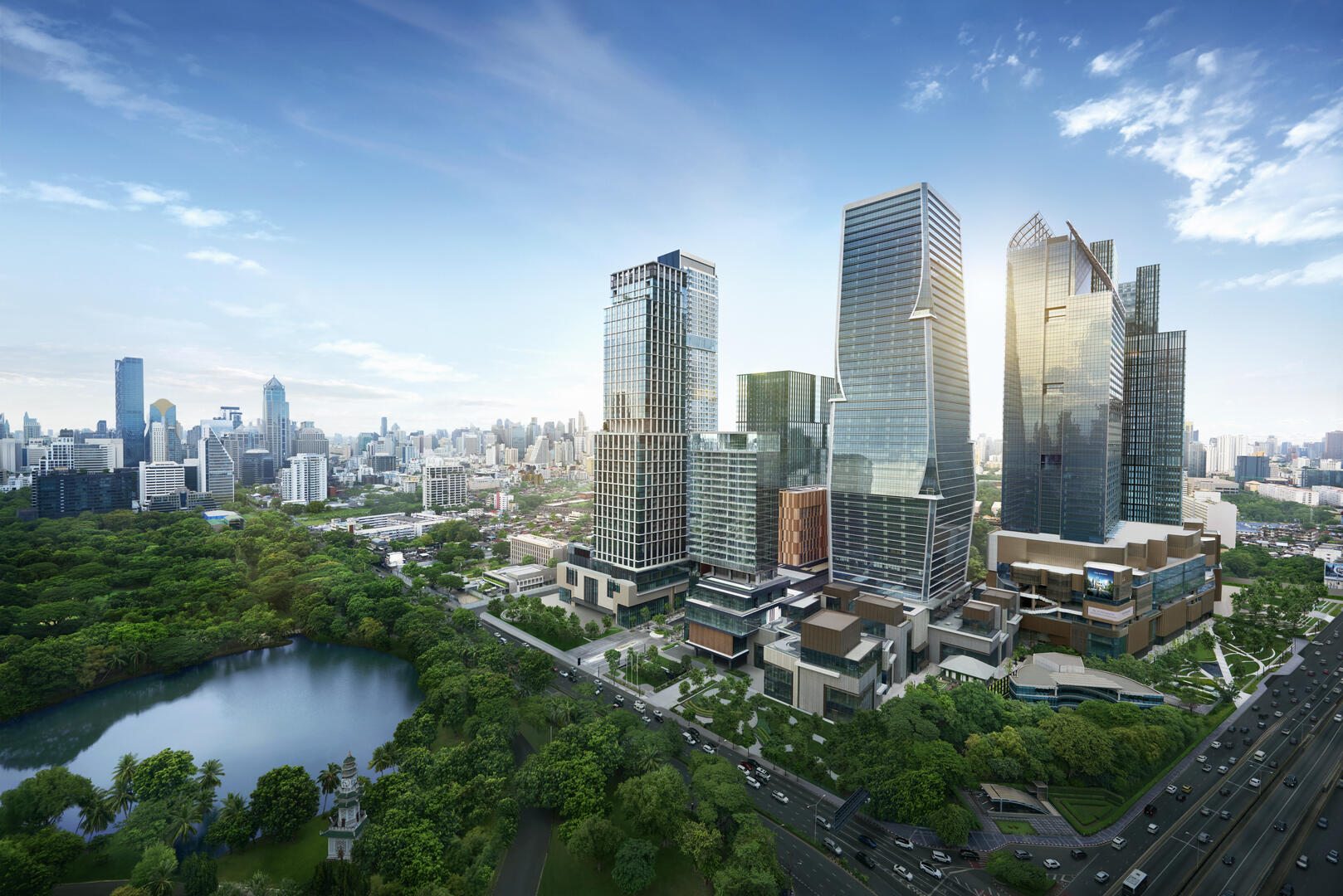
Opened in October 2024, One Bangkok is a sprawling, dynamic, multifaceted destination that blends retail, work, leisure and living into a vibrant, holistically integrated district in the heart of Bangkok.
Elevating liveability through integrated developments
The liveability of spaces encompasses elements in design and management that enrich lives, foster connections, and cater to a broad spectrum of needs.
Designed as a “city within a city”, our landmark mixed-use development in Thailand, One Bangkok, seamlessly integrates offices, retail spaces, residences, hotels and cultural venues, offering a dynamic environment where people can live, work and play. Directly connected to the city’s mass transit system, it offers visitors convenience and connectivity.
Over in Singapore, our integrated development, Northpoint City and North Park Residences, serves as a demonstration of how thoughtful planning can elevate urban living.
Northpoint City is the first mall in Singapore to house a community centre. It provides a space for people to come together, offering opportunities for learning, recreation and social interaction. This blending of access, convenience and community exemplifies modern city living with the added advantage of fostering social cohesion.
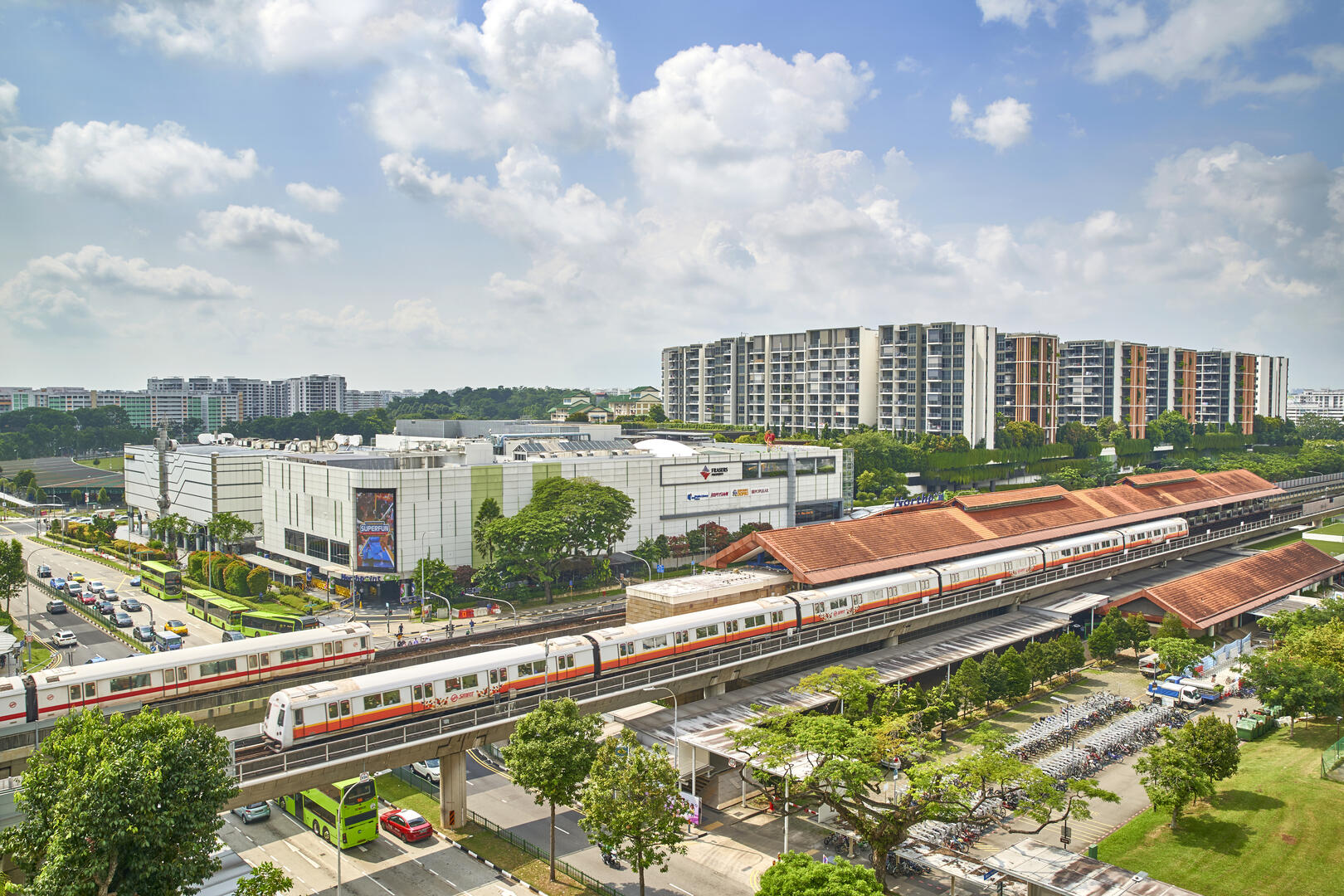
Investing in sustainability for a greener future
To reduce emissions across our developments and supply chains, we take an approach that considers the impacts of climate, nature and carbon on our business. This supports broader decarbonisation efforts as well as ensures our developments are nature-affirming.
The Tube, our upcoming industrial and commercial park in Düsseldorf, Germany, will house photovoltaic systems on its 76,000 sqm roof to produce electricity onsite. LED lighting and smart metering systems will also help reduce energy consumption, along with roof light bands that let in natural light. Additionally, the development is targeting the first-ever gold certification from the DGNB Germany Sustainable Building Council for its climate-friendly and transparent demolition of an industrial site.
Over in Australia, The Grove, an established residential development in Melbourne, integrates nature into urban spaces. Bordered by Davis Creek and the Werribee River, the development includes a wetlands system that enhances the ecological footprint of the surrounding river environment. This system serves multiple purposes. It creates habitats for local wildlife, provides recreational spaces for residents, and functions as a natural drainage and water filtration system helping preserve the health of neighbouring waterways.
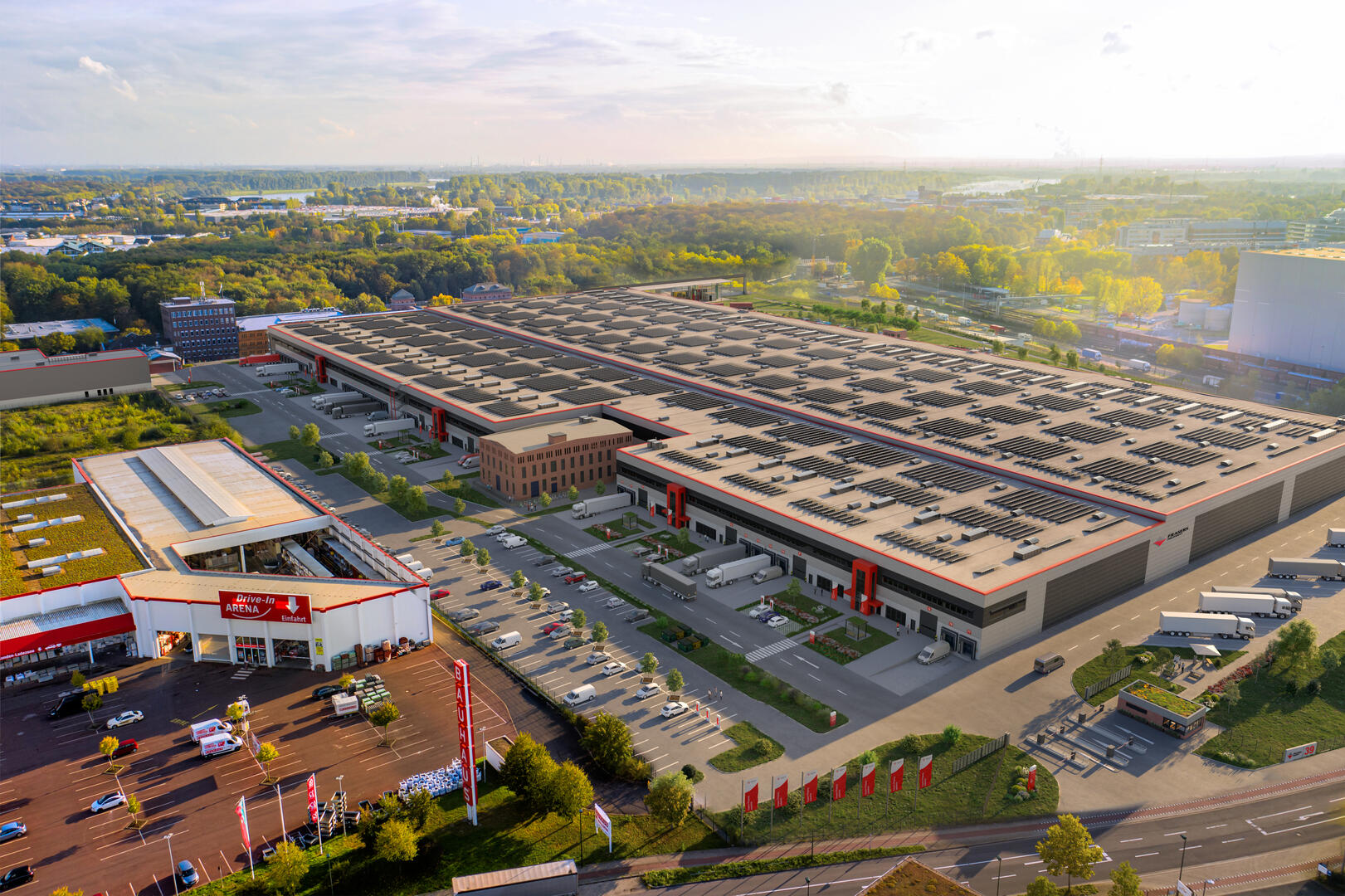
Artist's impression of The Tube, a state-of-the-art multifunctional industrial and logistics park.
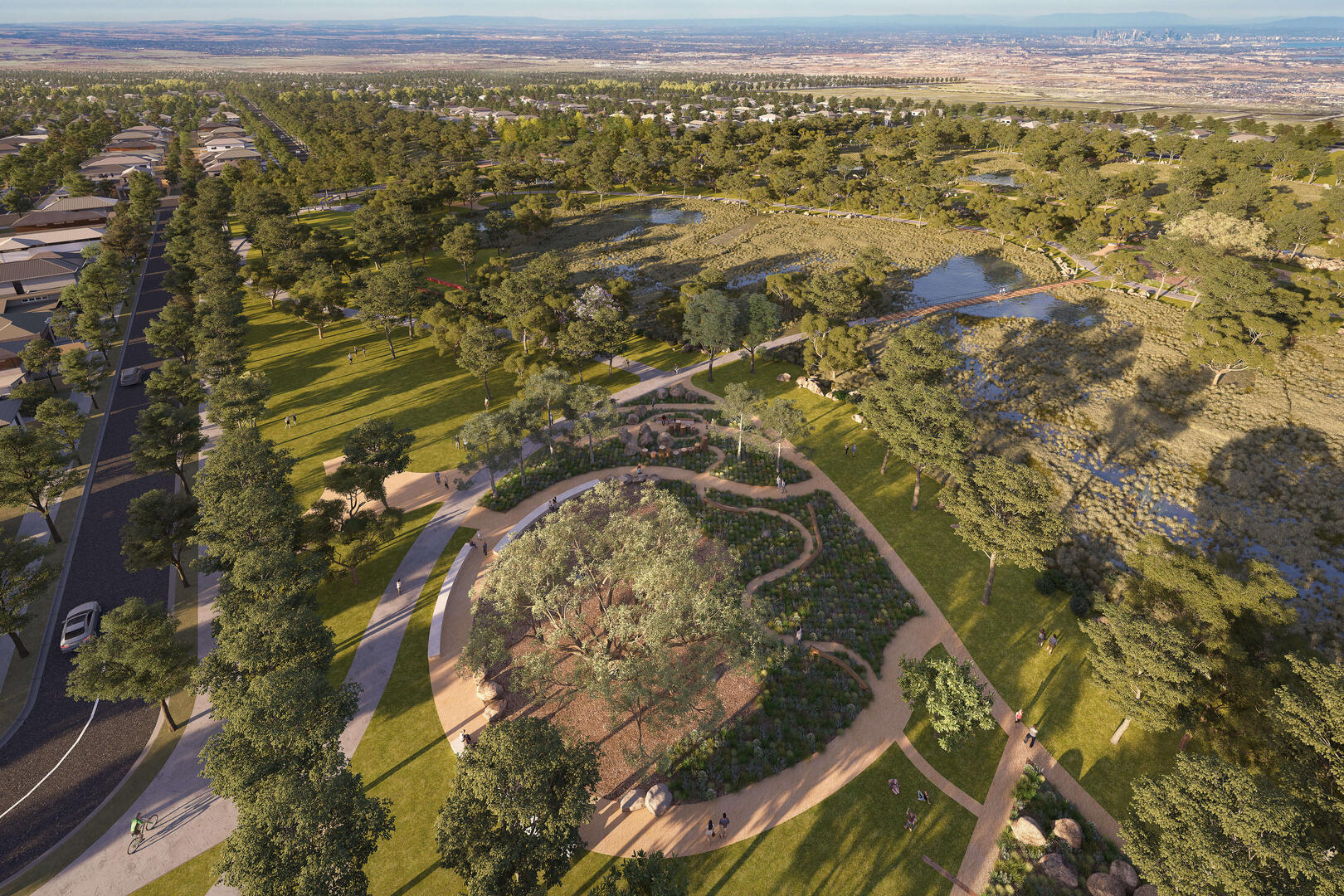
Artist's impression of Riverside at The Grove, with 11 ha of wetlands and open spaces.
Building resilience through people and infrastructure
The investment, development and operations of real estate spaces also play an integral role in supporting resilience in the surrounding communities, positively impacting a space’s accessibility and inclusivity.
In 2023, we launched an industry-first Inclusion Champions initiative across 10 of our malls in Singapore. Through tailored inclusivity training, the programme equips our retail staff and tenants with the skills and know-how to support customers with diverse needs, such as persons with dementia and shoppers on the autism spectrum. In collaboration with like-minded partners, we have since provided over 1,200 hours of training, empowering frontline employees and tenants to better support visitors of all abilities. As part of the initiative, participating retail tenants have also pledged to set aside space within their outlets as dementia go-to points.
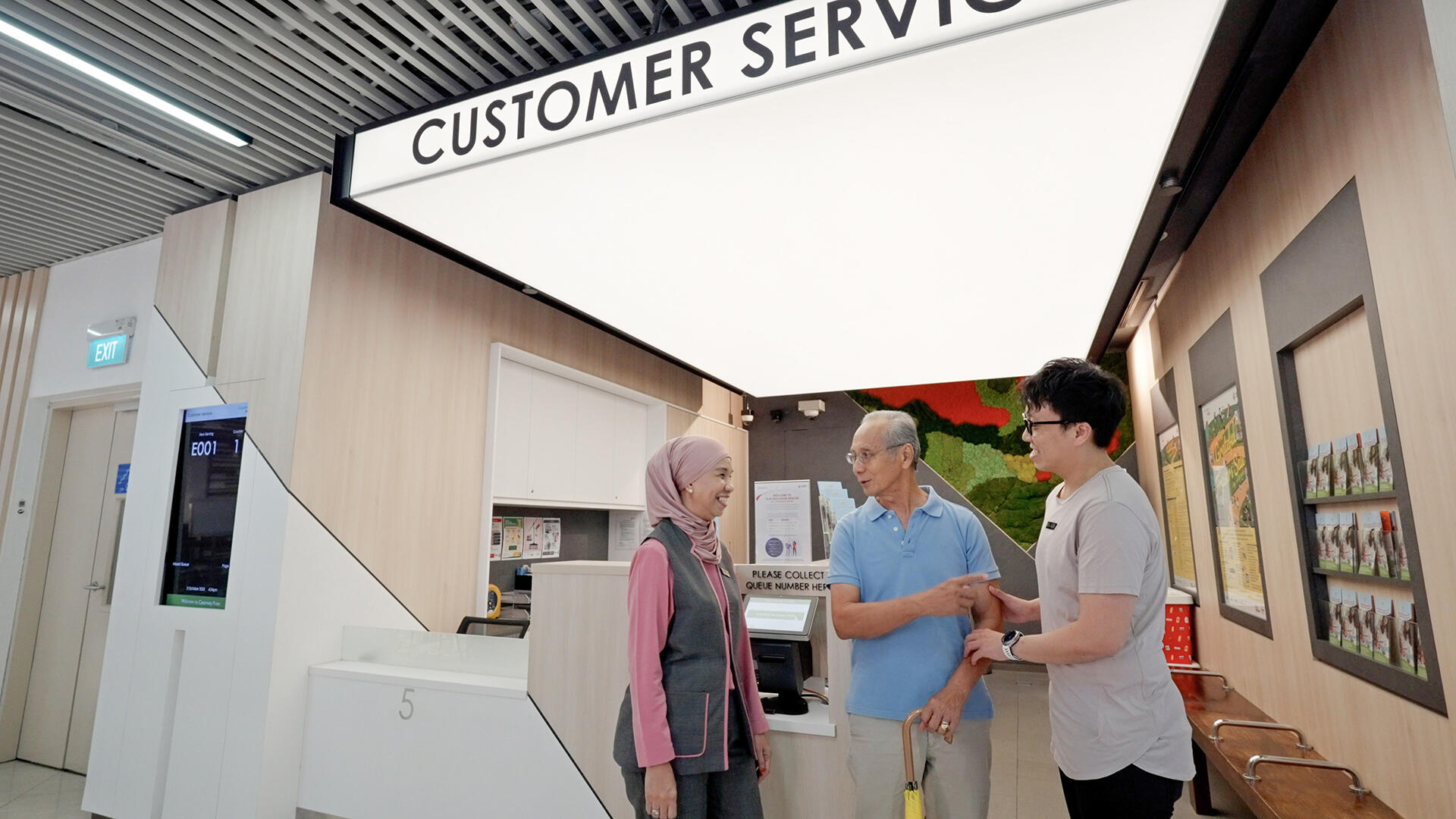
Aimed at creating accessible and inclusive experiences across our retail malls in Singapore, the Inclusion Champions programme involves six hours of inclusivity training for mall employees and participating tenants. The programme is now supported by more than 30 brands across over 100 stores.
With a focus on creating inclusive spaces, our malls are designed for accessibility. This includes Calm Hours, which are sensory-friendly periods at participating stores where noise levels are lowered and lighting is dimmed to support visitors with sensory sensitivities.
Since its inception, the programme has received positive feedback from tenants and the community, demonstrating how partnerships, management of spaces and collective building of capabilities can go a long way in supporting societal resilience.
Complementing this, our retail website provides a wayfinding feature supporting turn-by-turn navigation within each of our malls. This enhances the experience for our shoppers, particularly seniors, persons with disabilities and caregivers by offering mapped accessible routes.
As we continue adapting to evolving societal needs, initiatives like these underscore the dynamic role of real estate in strengthening community resilience and shaping more inclusive urban environments.
This parallels ongoing efforts at bolstering resilience in relation to climate change.
Ensuring affordability for all

A designated State Significant Development, Midtown MacPark includes the 24-level Bates Smart-designed MAC Residences building, the 20-level Soul Residences, two 14-level apartment buildings comprising 259 community housing apartments and one 20-level apartment building with 130 affordable apartments.
In Sydney, Australia, our Midtown MacPark residential development reflects a public-private approach to addressing affordability, a critical consideration in today’s real estate landscape.
Through partnerships with local authorities and community organisations, we have incorporated market, social and affordable housing into the project, addressing the needs of diverse income groups.
The 6-Star Green Star Communities development, rated by the Green Building Council of Australia, features a wide range of housing options – from studio apartments to three-bedroom penthouses and even terrace homes – as well as a convenience grocery store, cafes, a public primary school and two childcare centres.
This collaborative approach ensures our developments are not only commercially viable, but also socially impactful. By listening to our stakeholders and understanding the unique needs of property seekers, we are able to create inclusive spaces that benefit the broader community.
Creating value for stakeholders
These principles of liveability, sustainability, resilience and affordability are integral to our approach to real estate, across the multiple asset classes and markets where we operate. These are aimed at not only meeting immediate and anticipated needs, but also supporting the resilience of communities and businesses.
It is through partnerships and engaging with stakeholders that we continue to learn, adapt and innovate, as a means to create, sustain and unlock value for the long term.
